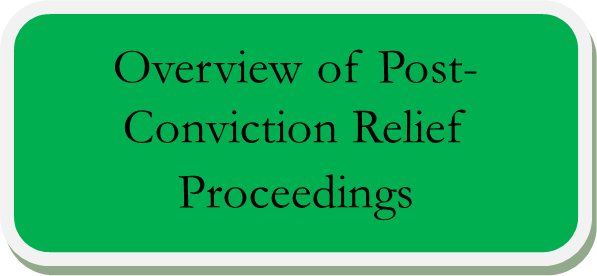
Direct Criminal Appeals
Anyone convicted of a felony offense at trial in an Arizona superior court has the right to have their conviction and sentence reviewed by the Court of Appeals. A criminal defendant may also appeal directly to the Court from certain other appealable orders (for example, an order revoking probation after a contested revocation proceeding). Arizona Rule of Criminal Procedure 31 governs both kinds of direct criminal appeals.
Criminal defendants who plead guilty typically waive their right to a direct criminal appeal and therefore cannot seek review of their convictions or sentences under Rule 31. However, they may in limited circumstances seek “Post-Conviction Relief” (PCR) under
Rule 33. In addition, the Court may – under certain circumstances – review via
special action orders that are not directly appealable. Cases in which the death penalty is imposed bypass the Court of Appeals and are automatically reviewed by the Arizona Supreme Court.
When the trial court imposes sentence, the defendant has 20 days to initiate an appeal by filing a Notice of Appeal with the sentencing court. A timely and properly completed Notice of Appeal must be filed to trigger an appeal. Counsel representing a defendant at sentencing may file a Notice of Appeal directly with the sentencing court at the conclusion of the sentencing hearing. A self-represented defendant may also file a Notice of Appeal at that time, but should read Rule 31 to be sure the notice is properly completed. If a Notice of Appeal is not filed at the time of sentencing, it can still be filed with the sentencing court within 20 days after the sentencing hearing.
After the Notice of Appeal is filed, the superior court will send the notice to the Court, all parties, and all court reporters who recorded the proceedings. Appellant’s counsel (either court-appointed or retained) may designate additional items that should be included in the record on appeal or may ask to exclude items from the record if they are not necessary for the appeal.
The superior court will then send the record to this Court and the court reporters will file the transcripts here. If appellant has court-appointed counsel, the court reporters will prepare the transcript at public expense. When the Court has the complete record, it issues a Notice of Completion and sets an opening brief deadline. An answering brief will be due after the opening brief is filed. The appellee may designate additional record items before filing the answering brief. A reply brief is allowed, but not required. Briefs must be served on all parties and include a signed certificate of service naming the parties served, the date of service, and the method of service.
After briefing is complete or the appeal is submitted, the appeal is considered “At Issue.” It will then be assigned to a panel of three judges and scheduled for conference with that panel. The Court will rule on any request for oral argument and if granted, will set the conference and oral argument on the same date. The panel will issue a decision after the appeal is conferenced.
There is no time limit for the panel to issue the decision, which can be in the form of a memorandum decision, an opinion, or an order.
Any party may file a motion for reconsideration within 15 days after the panel issues the decision or a petition for review in the Arizona Supreme Court within 30 days of the decision. If additional time is needed to file a petition for review, a motion must be filed in the Arizona Supreme Court.



